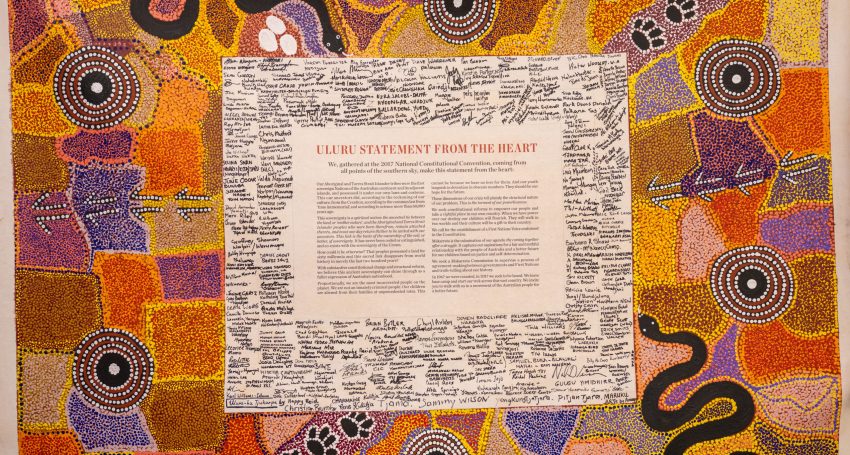Stumbling on the path to reconciliation
Opinion
There are some worrying signs that the Albanese Government is rushing into a referendum on whether an Indigenous Voice to Parliament should be enshrined in the Constitution.

The chance of a ‘yes’ vote succeeding is highly unlikely if people aren’t adequately informed and if there is any uncertainty whatsoever about the implications.
It seems to me that the goalposts keep changing. First we were told that it was about ‘recognition’ of Aboriginal and Torres Strait Islanders as the first occupiers of our land. I recall seeing slick advertisements along these lines as part of the Recognise campaign run by Reconciliation Australia.
Advertisement
Federal Government funding for the Recognise campaign ceased in 2017 but Reconciliation Australia still exists and has thrown its support behind the Uluru Statement of the Heart and its call for, not only recognition, but a ‘constitutionally enshrined Voice to Parliament’.
Reconciliation Australia insists it did not advocate for a specific model of constitutional reform. Instead, it says the campaign worked to bring conversations about constitutional reform and recognition into the mainstream, and engaged the broader community on why reform is needed.
In other words, it had a very specific focus to raise awareness across the Australian community of the need to change the Constitution, in advance of a referendum.
But to the average TV viewer/media consumer, like me, the campaign was about recognising First Nations people in the Constitution.
I’m not saying it’s a bad thing that the focus is now on a Voice to Parliament, but it does make it harder to get people on side, particularly when the latest proposed wording suggests a Voice to the executive arm of government as well. That’s a lot more complicated and far-reaching, as Fr Frank Brennan argues (see page 3), and some legal experts suggest it will lead to court challenges.
Advertisement
The Federal Government has established the First Nations Referendum Working Group and the First Nations Referendum Engagement Group to work on the next steps. There is a website called Aboriginal and Torres Strait Islander Voice. There is no media campaign, as far as I’m aware, as there was for Recognise.
What there is, however, is lots of conflicting views and speculation, on both sides of the debate, being aired publicly. The ordinary punter is left wondering just what the heck is going on.
Catholic Religious Australia (CRA) has long been a vocal supporter of the Uluru Statement of the Heart and an advocate for the Voice. Many of its members have lived and worked alongside First Nations people for years.
In a recent statement, CRA described the Voice as ‘an important stepping stone on the path towards respectful engagement, treaty-making and truth telling’.
But is that message getting traction in the wider community, let alone in remote Indigenous communities?
Related Story
Wording critical to Voice referendum: Brennan
In the same statement, one of the CRA’s executive members, Philippa Murphy FDNSC, said not enough education had been provided around the changes proposed, particularly to those who would be most affected.
The Government has promised there will be a referendum before the end of the year and the pundits have predicted it will be in October.
With the wording still being finalised, it’s difficult to see how a proper education and awareness campaign can be undertaken in such a short space of time.
According to independent polling, in the five years of the Recognise campaign, awareness levels rose from 30 per cent to more than 75 per cent of the population. These levels were higher amongst Aboriginal and Torres Strait Islander respondents (60 per cent to 84 per cent).
More than 160 community and corporate organisations partnered with Recognise to support change, and more than 18,000 Australians took part in the Journey to Recognition around the country. The Journey covered more than 38,000km over a three-year period and included 386 community meetings.
One can only hope that it wasn’t a wasted journey!







